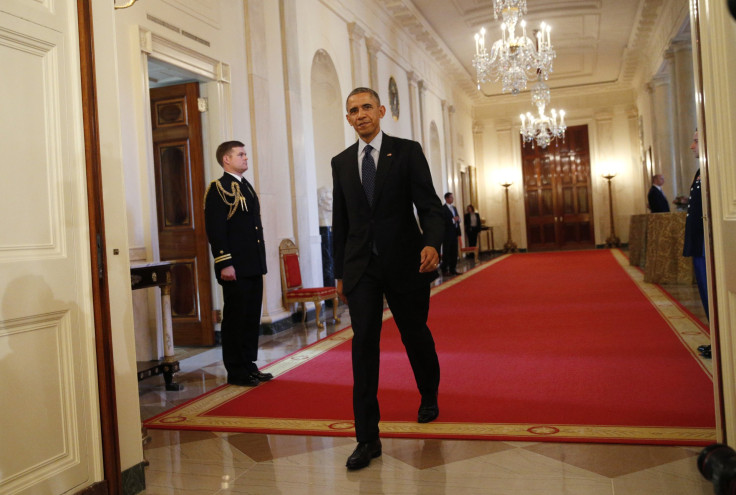Immigration Reform 2014: Young People Got Work Permits, Driver's Licenses Under 2012 Obama Policy

Renata Teodoro hugged her dad for the first time in 12 years. Yessica Leal stopped looking over her shoulder while driving. Lucas Codognolla quit the three part-time jobs he worked to afford college.
Their lives changed when the Obama administration announced the Deferred Action for Childhood Arrivals program in 2012, and now, with President Barack Obama's latest executive order on immigration, immigrants are hoping they'll change again. Obama is expected to unveil Thursday night a similar immigration overhaul that may give up to 5 million parents of U.S. citizens and legal residents new rights, Reuters reported. It's an exciting possibility for the nearly 600,000 qualified young people who got work permits, driver's licenses and Social Security numbers under DACA over the past two years while their parents continued to hide.
Being able to travel excited 27-year-old University of Massachusetts student Teodoro, whose father was forced to leave the country in 2001. After qualifying under the program, she was able to apply for advance parole, which enabled visit her home in Santa Catarina, Brazil. "For me, that was the hardest thing," she said. "Living here and not being able to reunite with my mom and dad and brother and sister ... not being able to see them at all."
For Leal, a 22-year-old who lives in Auburndale, Fla. and works at a department store, relief came in the form of a driver's license. For years, she drove without one, constantly scanning the roads for police cars. "I used to look around to see if a cop wasn't following me," she told IBTimes. "I knew if they catch you driving without a license, they'll take you to jail."
Other immigrants were excited by another document: their work permit. It was critical for Paul Quinonez, who enrolled as a political science and economics student at Gonzaga University in Spokane, Washington, not knowing if he could afford more than two semesters there. Quinonez came to the U.S. from Colima, Mexico, when he was 7. Under Obama's program, he became authorized to work: First as an office assistant, then as a restaurant cashier and eventually as a district office intern in the U.S. Senate. Quinonez' new earnings helped pay for school.
He's not alone. Nearly three-quarters of students got their first job or a new job after being approved under the DACA policy, according to the Center for American Progress. Almost half earned more money.
For many immigrants, the new legal rights brought a stronger sense of self-esteem. Moses Chege, an accounting and philosophy student at Whitworth University in Spokane who is from Nairobi, Kenya, said it was dehumanizing for so much of his life to be controlled by a piece of paper. Obama's memorandum provided freedom from that. "It's about getting legitimacy," Chege, 19, said. "'Oh, I'm supposed to be here.'"
Eligibility for the 2012 immigration policy was limited to people under age 31 who came to the U.S. before their 16th birthday, among other requirements. Codognolla, a 23-year-old who lives in Stamford, Connecticut, was hopeful that Obama's announcement would widen the age range and give privileges to parents of U.S. citizens and permanent residents. When Codognolla received news that he was approved in 2012, "the first question from my parents' mouth was 'What about us?'" he said. "That was just a dagger to my heart."
© Copyright IBTimes 2024. All rights reserved.





















